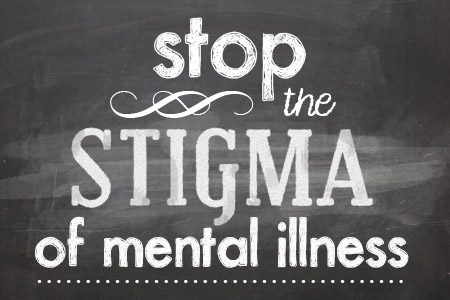Reducing the Stigma Around Mental Illnesses

Image Credit: www.vibrant.org
The stigma around mental illnesses is almost as prevalent as the illnesses themselves. This stigma creates a negative connotation that can severely impact individuals with mental illnesses.
What is the stigma?
For starters, a stigma is defined by Merriam-Webster as, “a mark of shame or discredit.” People with mental illnesses are shamed for an illness that they have no control over. The stigma of mental illness can prevent people from reaching out and getting the help they need, even from their own families.
This stigma is presented in two ways: social stigma and self-perceived stigma. Social stigma involves the prejudiced attitudes that others have about mental illness and self-perceived stigma is more internalized; the individual feels ashamed and guilty for having a mental illness.
Why the stigma?
Throughout history, mental illness has always been stigmatized, which has halted the progression as a society towards the comprehension and acceptance of mental illness. In some portions of the world, mental illness was thought of as being “the mark of the devil” and even nowadays, mental illness is seen as a form of “evil.”
The stigma around mental illness can also be accredited to misinformation and prejudice against the affected individuals. The lack of education regarding mental conditions can lead people to misinterpret and poorly judge others, which then leads to an inaccurate representation and treatment of these individuals.
How can the stigma be reduced?
The stigma around mental illness can be reduced by educating ourselves and others about mental illnesses; what they really are, how they can affect an individual, and what we can do to help our peers that are affected by them. Talking openly about mental illness can also help reduce the awkwardness that often arises and it allows people to be open about their experiences. Compassion and establishing normalcy with individuals with mental illnesses can also help reduce the stigma. Remembering that someone that has a mental illness should be treated as normally as others can also greatly help reduce the stigma; acknowledging that mental illness does not define a person is the first step towards reducing the stigma.
Your donation will support the student journalists of Anaheim High School. Your contribution will allow us to purchase equipment and cover our annual website hosting costs.

Angela Gonzalez is a senior at Anaheim High School. She is a bilingual reporter and editor in Spanish. She has been enrolled in the Dual Language Academy...









